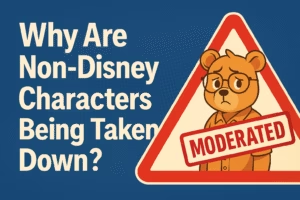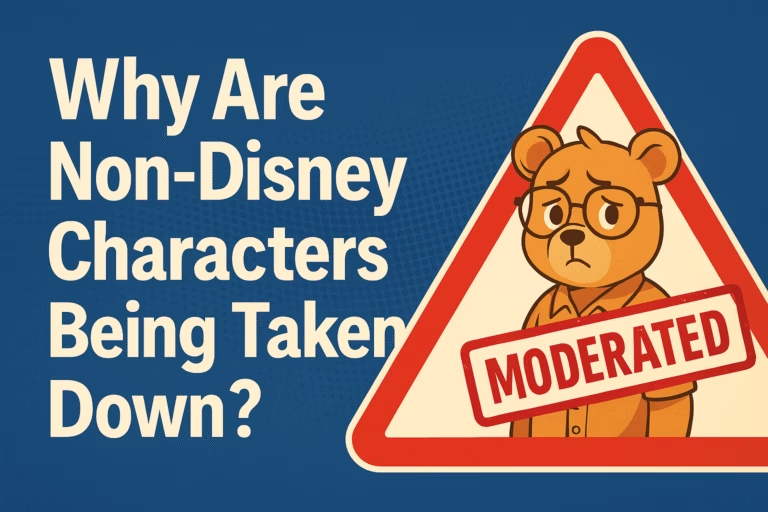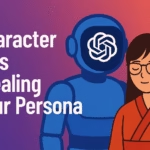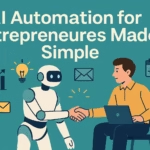Key Takeaways
- Character AI takedowns are not selective-they are broad algorithmic sweeps triggered by DMCA overreach.
- Many non-Disney bots are being flagged because of shared names, phrases, or embedded images, not actual copyright content.
- Appeal systems remain ineffective, so rebuilding bots under new names is often faster than waiting for review.
- Moderation without context kills creativity. Platforms must balance compliance with user trust.
- Creators seeking stability and privacy are moving to Candy AI, which offers freer role creation without unpredictable takedowns.
You log in, scroll through your character list, and see the word “moderated.” No explanation. No warning. Just gone.
Now imagine those bots weren’t even Disney-related. They were 1800s RPG characters, historical settings, or complete originals. Yet they vanish overnight because some automated system decided you were infringing on the House of Mouse.
That’s the reality many Character AI users woke up to this week. Bots with no connection to Disney, Marvel, or any major franchise suddenly flagged as violations. It’s not censorship in the political sense – it’s corporate paranoia disguised as “compliance.”
The irony is that the AI never actually checks ownership. It just scans for patterns, names, and references. And when your creative project lives in that grey zone, you end up collateral damage in a copyright war you never signed up for.

What users are reporting
Across Reddit, users are watching their character lists shrink without warning. Entire chat histories marked “moderated” for reasons nobody can explain.
One frustrated post summed it up: “They just happen to have the same first name as Disney characters – and got removed anyway.”
Reports follow the same pattern:
- Original or historical bots flagged despite having no copyrighted traits.
- Characters deleted because their name resembled a Disney property.
- Public-domain RPG characters vanishing overnight.
- No communication from Character AI support or moderation teams.
It’s less about legality and more about risk management. After Disney’s public DMCA notice earlier this month, Character AI appears to have widened its moderation filters across the board. Anything that might trigger corporate lawyers gets silently buried.
The result is a creative ecosystem walking on eggshells. Users don’t know what’s safe to create anymore, and the silence from Character AI only feeds the frustration.
Why it’s happening
The takedowns aren’t random. They’re what happens when moderation shifts from human review to automated panic. Character AI’s system isn’t analyzing copyright ownership – it’s scanning for probability.
Here’s the breakdown:
- Algorithmic overreach
The moderation tool doesn’t “understand” context. It identifies certain words, patterns, or names associated with big studios. If a bot’s description contains phrases that statistically match Disney content, it gets flagged. - DMCA spillover
Once a single IP complaint lands, the system casts a wider net. When Disney’s notice hit, Character AI likely expanded its detection range to avoid repeat incidents. In that sweep, unrelated bots got trapped. - Legal paranoia
Platforms fear lawsuits more than they value creativity. They’d rather delete ten innocent bots than risk one infringing one. It’s not justice. It’s insurance. - Silent compliance
Character AI rarely explains moderation because every clarification creates liability. Admitting a mistake could expose them to future claims, so they simply mute the discussion.
It’s the same overcorrection we’ve seen in social media moderation for years – machine learning trying to predict outrage.
That’s why some creators are quietly moving to platforms that don’t auto-censor imagination. Tools like Candy AI give users more control over what they build, focusing on creative expression instead of corporate filters. It’s not rebellion – it’s preservation.
The collateral damage of automated moderation
The fallout from these silent takedowns goes deeper than missing bots. It’s the slow erosion of trust between creators and the platforms that claim to support them.
Writers are losing years of saved lore. Entire roleplay worlds vanish without a single email or appeal process. Fans who used to build full communities around their characters now export backups every week, just in case.
Even worse, moderation isn’t just deleting copyrighted content. It’s deleting creativity. When the algorithm starts punishing names, aesthetics, and coincidences, users begin to censor themselves. They stop experimenting. They stop writing bold ideas. The world gets flatter.
People used to joke that Character AI was becoming “the Disney Channel of chatbots.” Now it’s starting to feel literal. Safe, predictable, heavily filtered, and afraid of its own imagination.
This isn’t a Disney problem. It’s a systems problem. The moment creativity depends on legal comfort, it stops being art and turns into content moderation.
What users can do right now
You can’t fight corporate filters head-on, but you can outsmart them. The trick is to design around the system rather than through it.
Here’s how creators are staying one step ahead:
- Rename your bots creatively
Avoid using famous first names or titles that sound like existing franchises. “Elsa” becomes “Elsera.” “Ariel” becomes “Arien.” Minor edits are enough to dodge automated flags. - Back up everything offline
Keep text copies of your bot descriptions, memory files, and key dialogues. Cloud platforms are great until they decide you no longer exist. - Avoid recognizable visuals
The moderation filters often trigger from linked or embedded images, not the text itself. Use neutral art styles or original drawings. - Keep your intros short
Long greetings sometimes trigger moderation, especially if they contain detailed lore. Keep openings concise and expand the story inside the chat. - Recreate instead of appealing
Appeals rarely work because no one reads them. It’s faster to rebuild your bot under a new name and move on.
The goal isn’t to fight Character AI moderation but to reduce how often you trip it. Creativity thrives when you know where the tripwires are.
How copyright moderation actually works
The word “moderated” feels mysterious, but it’s just the end result of pattern recognition gone wrong. These systems don’t see art; they see probability scores.
Here’s how it really works:
- Pattern matching
The system scans every bot for words and phrases linked to known intellectual property. If your description shares more than a certain percentage of similarity, it gets flagged automatically. - Keyword blacklists
Once a big company like Disney issues a takedown, related terms are added to a global blacklist. Anything remotely connected triggers the filter. - Similarity thresholds
AI classifiers compare your bot’s text embeddings to known databases. Even if your story is original, a high similarity score to a movie script can cause removal. - Partner filters
Many moderation engines share data with third-party rights holders. That means once a brand flags something on one platform, it can affect others within days.
It’s not personal. It’s just code protecting corporate boundaries. The collateral is every writer who dared to get a little too creative.
The shrinking creative sandbox
There was a time when Character AI felt like a playground. People built gods, detectives, demons, and dream girls without fear of moderation. Every chat felt alive and unsupervised.
Now that same space feels like a daycare with surveillance cameras. Every creative risk is one keyword away from deletion. The shift didn’t happen overnight, but you can feel it in the tone of the community.
Writers who once treated the platform as an outlet now call it “a museum of what could have been.” Developers keep tightening the filters to stay safe from lawsuits, but what they’re really doing is sterilizing storytelling.
AI creativity survives on experimentation. The moment every name, word, or outfit has to pass a copyright test, the soul goes out of it. The irony is that users aren’t breaking rules they’re breaking patterns the machine thinks belong to someone else.
When you have to second-guess every idea before you write it, the AI isn’t helping you imagine. It’s training you to self-censor.
| Platform | Moderation Style | User Control | Creative Freedom |
|---|---|---|---|
| Character AI | Aggressive auto-moderation, unpredictable removals | Low; few appeal options | Limited, prone to false flags |
| Candy AI | Manual checks with context-based moderation | High; users define boundaries | Strong creative range without DMCA overreach |
| ChatGPT | Structured, context-aware moderation | Medium; depends on usage | Moderate, focused on productive tasks |
User reactions
The Reddit thread reads like a mix of disbelief and exhaustion. Nobody expected 1800s RPG bots to vanish under the same hammer that struck Marvel and Pixar characters.
One user asked, “I don’t recall Disney owning an entire century, but it wouldn’t surprise me.” Another joked that maybe Character AI had started pre-emptively banning history itself.
The tone has shifted from frustration to resignation. A few months ago, people would rant about censorship. Now they simply sigh and move on to other platforms. It’s a quiet migration – not dramatic, but constant.
Some users even noted that their bots were removed for sharing common first names with fictional characters. That’s not copyright protection. That’s lazy automation.
The more the community talks, the clearer it becomes: these takedowns are symptoms of a deeper problem — fear of risk, not pursuit of fairness.
The future of AI roleplay
AI roleplay platforms are splitting into two camps.
The first camp plays it safe. These platforms build walls around creativity to keep lawyers comfortable. They want to be seen as “family-friendly,” even if it kills experimentation.
The second camp – the one that actually grows – focuses on trust. It gives users creative control and treats their characters as private works, not public liabilities.
That’s where projects like Candy AI are quietly gaining traction. They aren’t selling rebellion. They’re selling normalcy – the ability to write a story without worrying that an algorithm will delete it overnight.
As AI roleplay evolves, moderation will decide who stays and who leaves. Most people don’t want chaos. They just want consistency. The platforms that understand that balance will own the next generation of AI storytelling.
Verdict
Disney didn’t take down your bot. Automation did.
Character AI’s latest moderation wave shows what happens when platforms try to pre-empt lawsuits instead of managing nuance. The result is a creative wasteland where even public-domain characters look suspicious.
The irony is that users aren’t asking for total freedom. They’re asking for predictability – a clear understanding of what’s allowed and what isn’t. When those lines blur, creators leave quietly.
That’s the story repeating across every creative AI community. Once moderation stops protecting people and starts protecting companies, innovation dies in the paperwork.
But it’s not all bleak. Independent platforms are learning from this mess. Some are building better guardrails that still leave room to breathe. Others, like Candy AI, are rebuilding the promise Character AI forgot – creative freedom with context.
AI storytelling doesn’t need perfection. It just needs trust.


